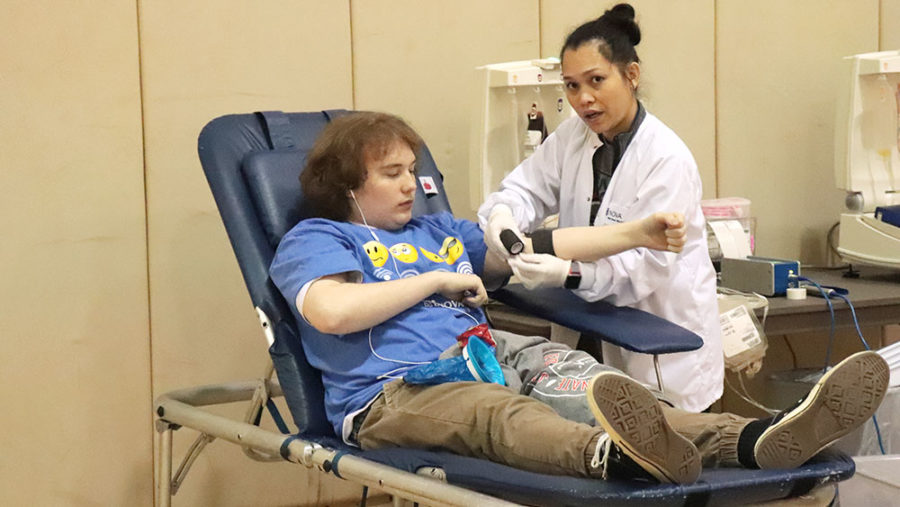An Important Cause
Recently, Key Club hosted their annual blood drive, which helps to supply INOVA hospitals with much-needed resources to save the lives of their patients
Blood is a resource that everyone has access to but very few donate. According to inovablood.org, less than 10 percent of eligible donors in America choose to give their blood. Many people are apprehensive about the process or unsure of why it is so important to donate, and the result of so few donations is that INOVA hospitals, as of March 2019, are short on all blood types but B-.
Key Club is a nationwide organization that strives towards the betterment of the community through volunteer work. The PFHS Key Club sponsors a blood drive every year with help from INOVA. This year, the blood drive was held on April 2 during all blocks, and many students signed up to donate.
“I think the blood drive is a great way to help the community because it helps save lives,” said Key Club president Emely Melendez. “Every one pint of blood donated saves three lives, which is such a huge thing, especially with the rise of car crashes and… many diseases.”
Key Club had a table set up during lunch blocks for two weeks prior to the blood drive where students signed up to donate blood. During the event itself, INOVA representatives supervised and performed the entire process, making it both safe and efficient.
Blood drives such as this are invaluable both to the people who receive blood and to the hospitals who need donations to continue saving lives.
“We… always get word back in an email from INOVA thanking us for allowing them to come and having so many people donate to the cause,” said Melendez.
If students were not able to make it to the Key Club drive, or if they decide they are interested in donating again, there are four convenient INOVA clinics accepting blood. One of these is on Nokes Boulevard in Sterling, which is only a ten-minute drive from Potomac Falls.
“One thing I would want people to know is how important this cause is, and how many lives they can save, and how they shouldn’t worry about a needle because it really doesn’t hurt,” said Melendez. “Rather, [they should] think about all the good they’ll be doing and how great it will make them feel in the end.”


